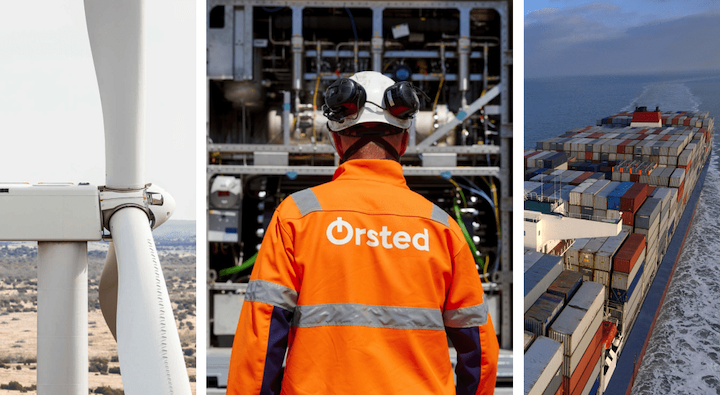Ørsted, a leading U.S. clean energy developer, announced today it has been selected by the Department of Energy (DOE) Office of Clean Energy Demonstrations to begin award negotiations for up to $100 million in federal funding to construct a groundbreaking Power-to-X facility, called Star e-Methanol, along the Texas Gulf Coast.
Ørsted’s project was selected as one of 33 projects across more than 20 states to demonstrate commercial-scale decarbonization solutions needed to move energy-intensive industries toward net-zero. It was one of a subset chosen for funding that, according to the DOE’s Funding Opportunity Announcement, represents a “world-leading, first-or early-of-a-kind, full facility build resulting in significant emissions reductions up to net-zero operations.”

The U.S. industrial and transportation sectors accounts for 65 percent of U.S. greenhouse gas emissions. Ørsted is leveraging its renewable power portfolio to produce green hydrogen and e-methanol to reduce emissions from these sectors. Star e-Methanol is estimated to produce up to 300,000 metric tons of e-methanol annually which can be used directly as a marine shipping fuel, or as an input in sustainable aviation fuel or in chemical production, which all currently rely on energy-intensive fossil-derived fuels.
The Star e-Methanol project consists of multiple components to reach a net-neutral carbon solution. This includes building new onshore wind and solar projects in Texas to power the electrolysis of green hydrogen, capturing biogenic carbon from an industrial facility, and synthesizing the captured biogenic carbon with green hydrogen to create e-methanol. The resulting e-methanol will reduce CO2 emissions by more than 90 percent compared to conventional marine fuel.
The project is estimated to create 300 construction jobs and 50 permanent jobs for operations and maintenance. Many employees supporting the project will be based in Houston, where Ørsted opened a new office in early 2024. Ørsted has also committed to working with the University of Houston to create a meaningful community benefits plan that incorporates workforce development training, furthering STEM at educational institutions, and supporting environmental justice initiatives.







